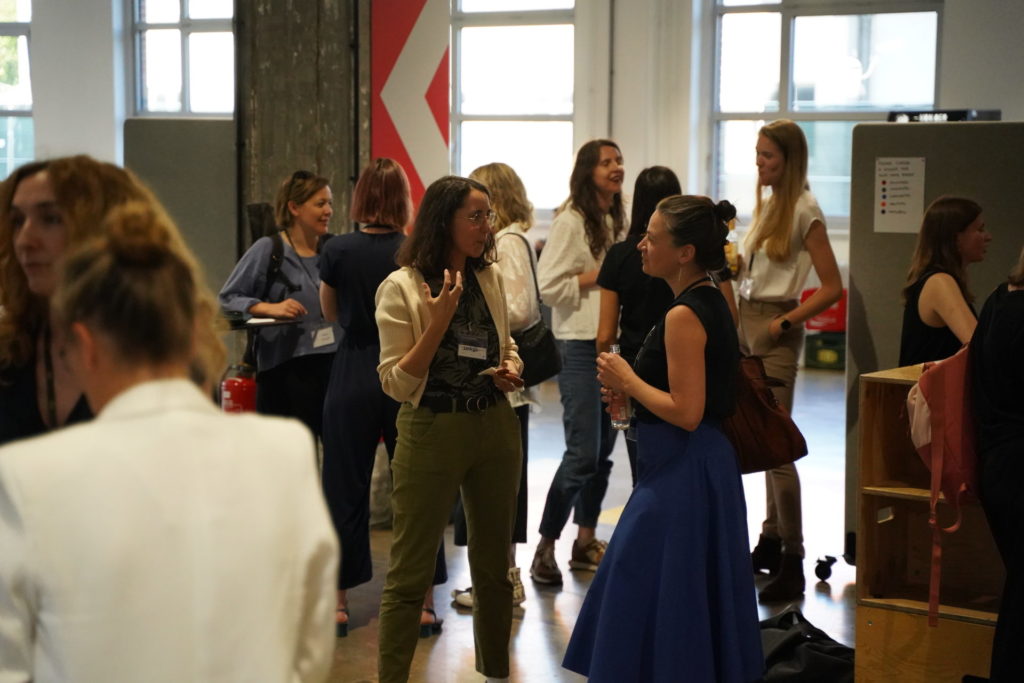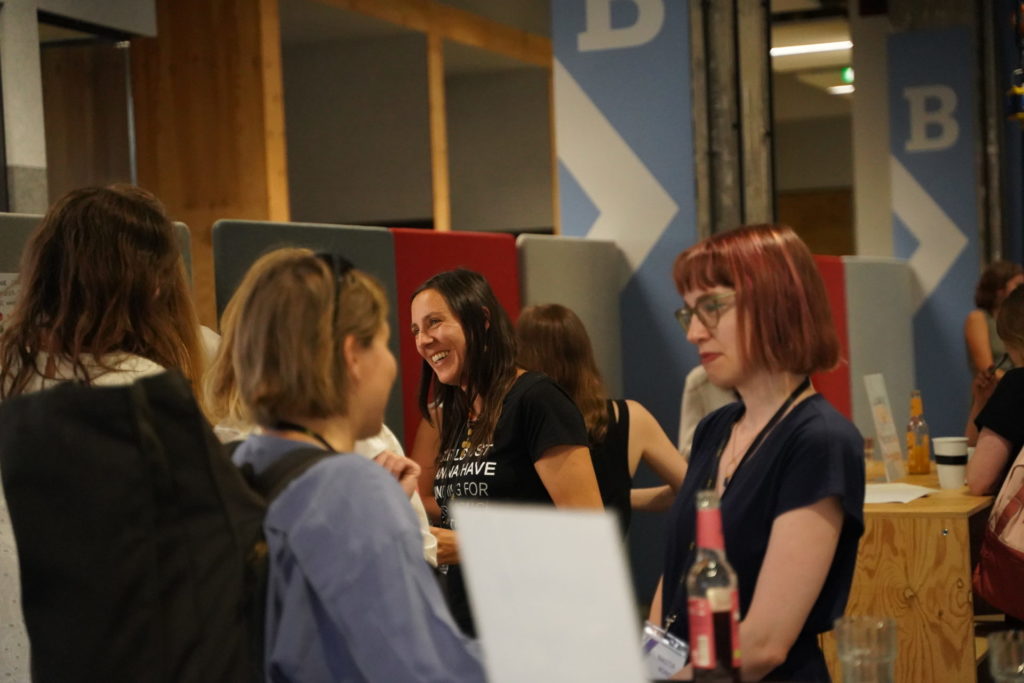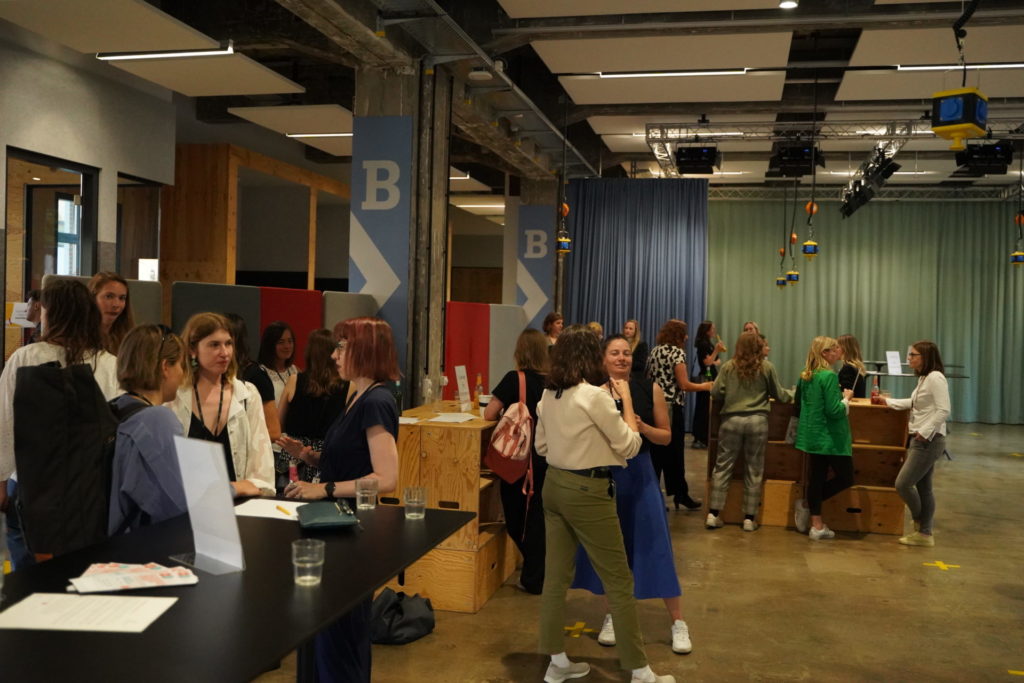Diversifying leadership in the green tech revolution
Why the green tech revolution is a feminist revolution
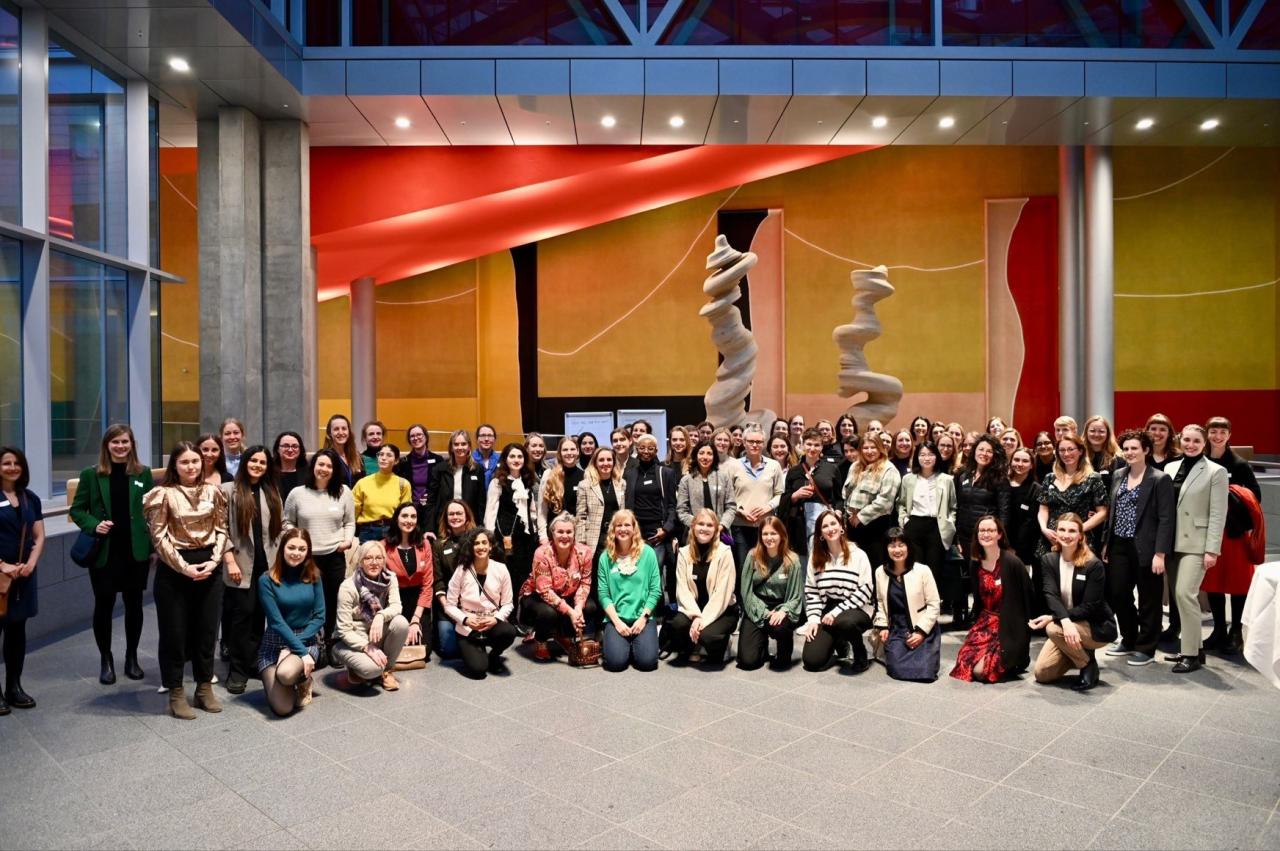
In March, Impact Hub Berlin attended the Women Supporting Women in Green Tech & Climate Innovation networking event, organised by Unique-U Coaching and Climate-KIC and hosted at the British Embassy Berlin. This was only the second event of the series, yet tickets sold out within 48 hours, with over 200 women on the waitlist. The host, and a female leader herself, Sarah Needham, opened the event expressing the organisers’ simultaneous surprise and complete lack of surprise, at the level of engagement from women in the Berlin ecosystem.
Who are these women?
One of the two panellists – Alina Bassi, founder of Kleiderly, and Aditi Ramdorai, from SYSTEMIQ – kicked off the panel with a quote that would set the tone for the evening, “The green tech revolution is a feminist revolution.” The determinism, energy for collaboration and shared inspiration in the room, was palpable.
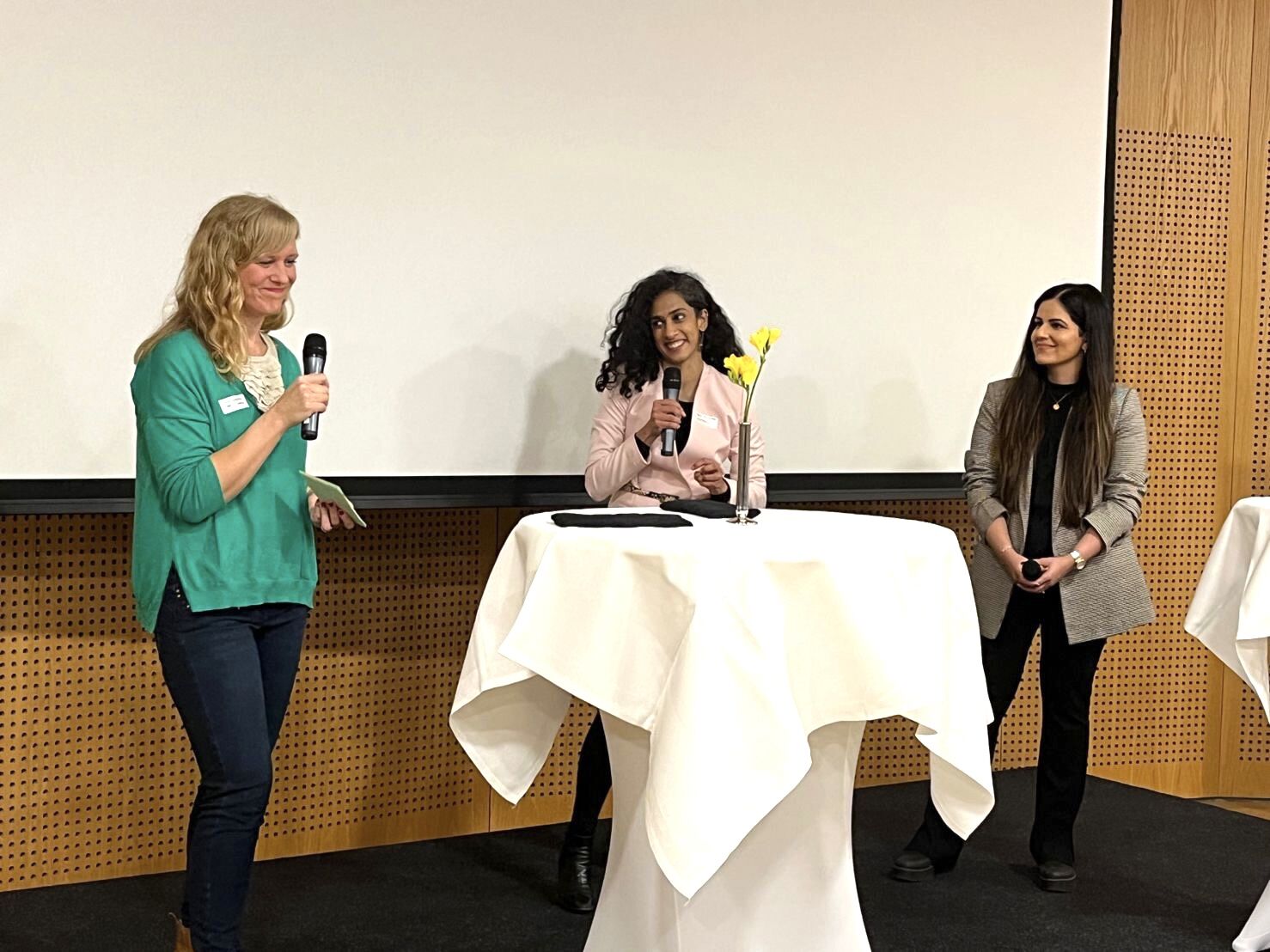
The 300+ women who jumped at the opportunity to support each other are the powerful, empathetic and collaborative leaders driving a just and equitable transformation of the tech industry. These are the women who have been previously pigeonholed into roles considered secondary by cis male-dominated boards and top management teams — including sustainability and corporate social responsibility (CSR). Women who are now experts in environmental and sustainability issues and empowered to lead the green tech revolution.
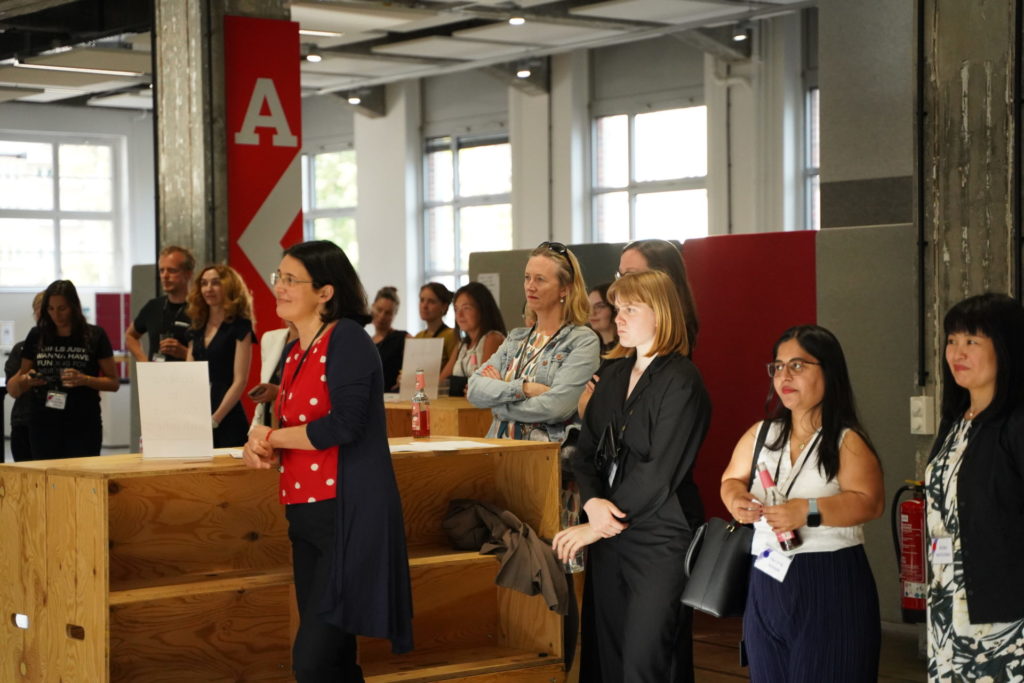
This is, of course, the optimistic view of women’s position in the green transition and wider economy.
While Germany is often perceived to be a frontrunner in gender equality — largely down to Angela Merkel’s 16 year term as Chancellor — Germany ranks in the lowest third of Member States when you look at the percentage of women in executive positions. As of 2021, only 29% of executive positions in Germany were held by women.
This figure remains disappointingly low even after the approval of a new gender balance law under Merkel’s leadership, which requires that listed companies with four executives or more must appoint at least one woman to their boards. The hope was that this would send a strong signal to corporations to “take advantage of the opportunity presented by highly qualified women” (Justice Minister Christine Lambrecht, 2021).
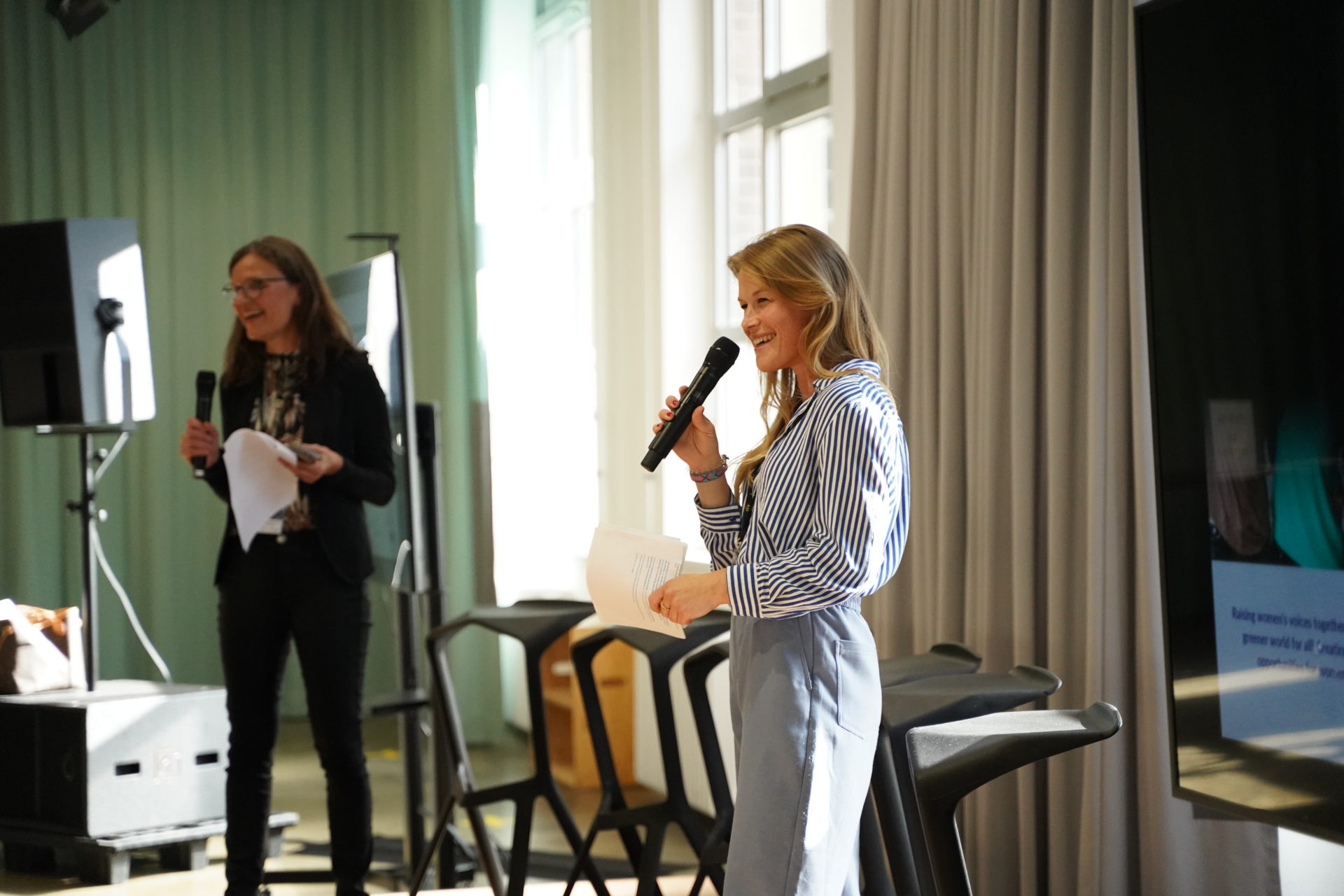
Yet by September 2022, only three of the 40 corporations in the blue-chip DAX index had achieved an equitable number of male and female board members; Continental, Fresenius Medical Care and Siemens Healthineers. In the same year, women also earned an average of 18% less than their male counterparts and only 20.3% of founders in Germany were women.
The signal was clearly not strong enough.
Women continue to be systematically passed over for crucial career promotions in large corporations. Globally, the percentage of female managers in sustainability roles rose from 39% to 63% between 2011 and 2020, creating a deep talent pool of women equipped to lead the green tech revolution. Yet at the executive, senior or management level, only 26.5% of positions are held by women in S&P 500 companies. At C-level, just 10% of positions are held by women.
This creates a major block for the green tech revolution in corporations which arguably have the potential to create the greatest impact.
A structured systematic review found that the presence of women in top management positions — on the board of directors, executives or C-level positions — is associated with greater corporate engagement in social and environmental projects. Women in leadership also positively influence environmental and social performance, and sustainability disclosure processes. In general, women are found to have a greater desire to address social and environmental challenges, are more fulfilled by the opportunity to champion others, engage with diverse stakeholders and inspire a vision for the future that benefits all.
This is feminist leadership. This is the leadership we need for a just green tech revolution.
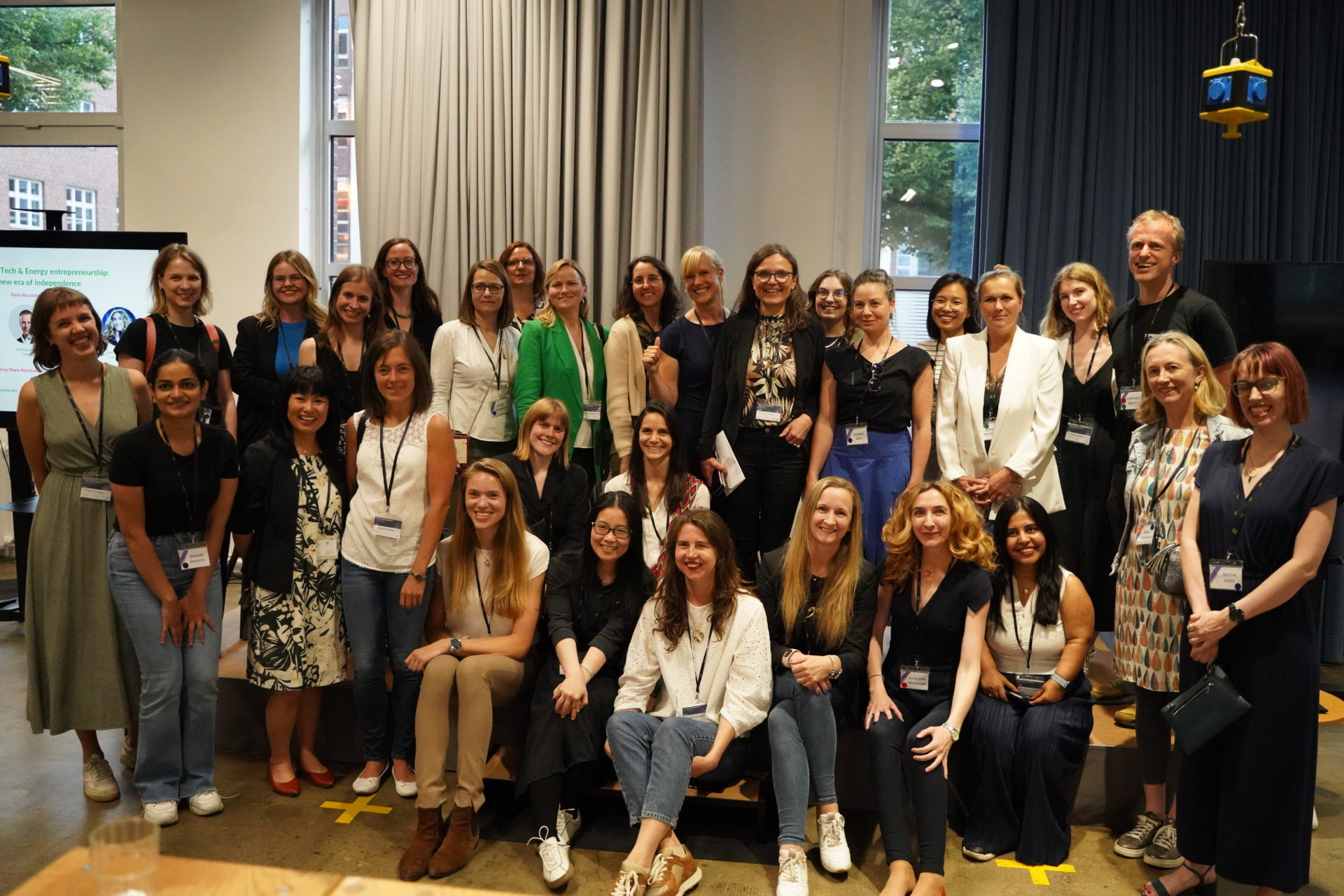
The tide is turning. The overwhelming response to the Women Supporting Women in Green Tech & Climate Innovation event is just one sign of the seismic shift shaking up Berlin. Last year the entirely female-led, Berlin-based green tech investment fund, Green Generation Fund announced its first €100 million fund. The coworking space, Tuesday now offers a price reduction of 19% for women. Their decision is a symbol of solidarity and recognition of the gender pay gap.
At Impact Hub Berlin, we are promoting diversity, equity and inclusion across all our four ecosystems — including Green Tech — in which we help entrepreneurs and their partners grow their impact.
Of course, it’s not only women we need to lead the sustainable transformation of the tech industry. Across the ecosystem, we need a more gender-diverse, intersectional feminist, collaborative and empathetic approach to leadership which can help us achieve a just, equitable and inclusive transformation.
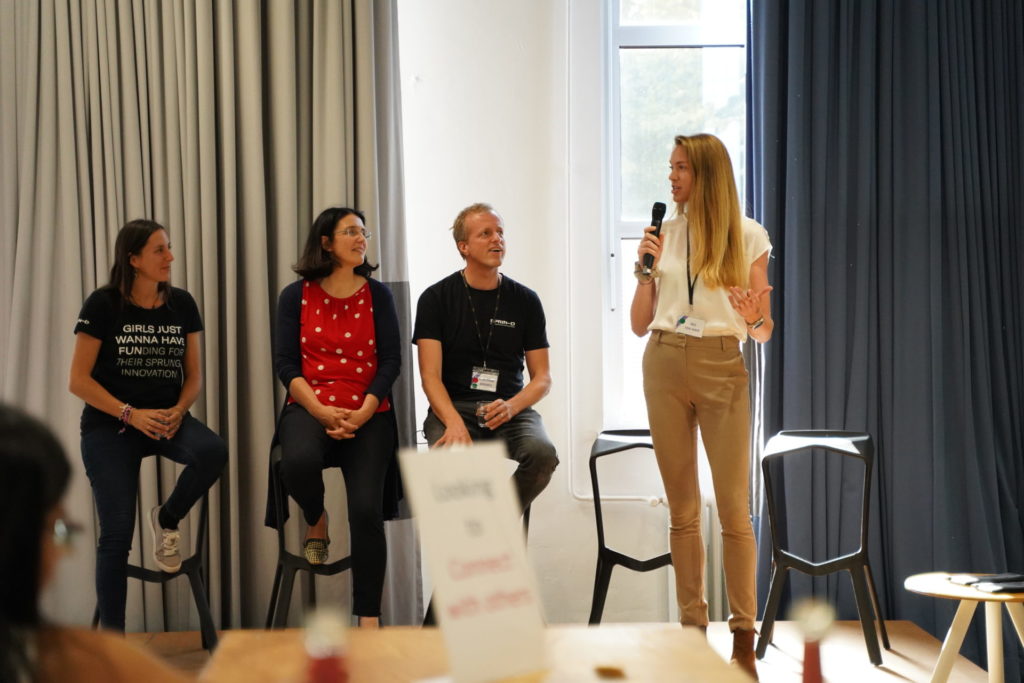
On Wednesday 30 August, we are hosting Women Supporting Women in Green Tech & Climate Innovation: Inviting FINTA Founders, Partners & Allies. This event – co-organised by Climate-KIC and Impact Hub Berlin – aims to connect FINTA* (female, inter, non-binary, trans, agender) entrepreneurs and founders, corporate leaders, thought leaders and researchers, VCs and Angels, policymakers and others working in tech and sustainability. Follow this link to register now, while you can!
At this event, we are excited to hear from members of our Diversity, Equity & Inclusion ecosystem. Join us at Women Supporting Women in Green Tech & Climate Innovation: Inviting FINTA Founders, Partners & Allies to connect with the founders recently selected for our Empower Now incubator programme (hosted in cooperation with tbd*) and our intersectional advisory board.


